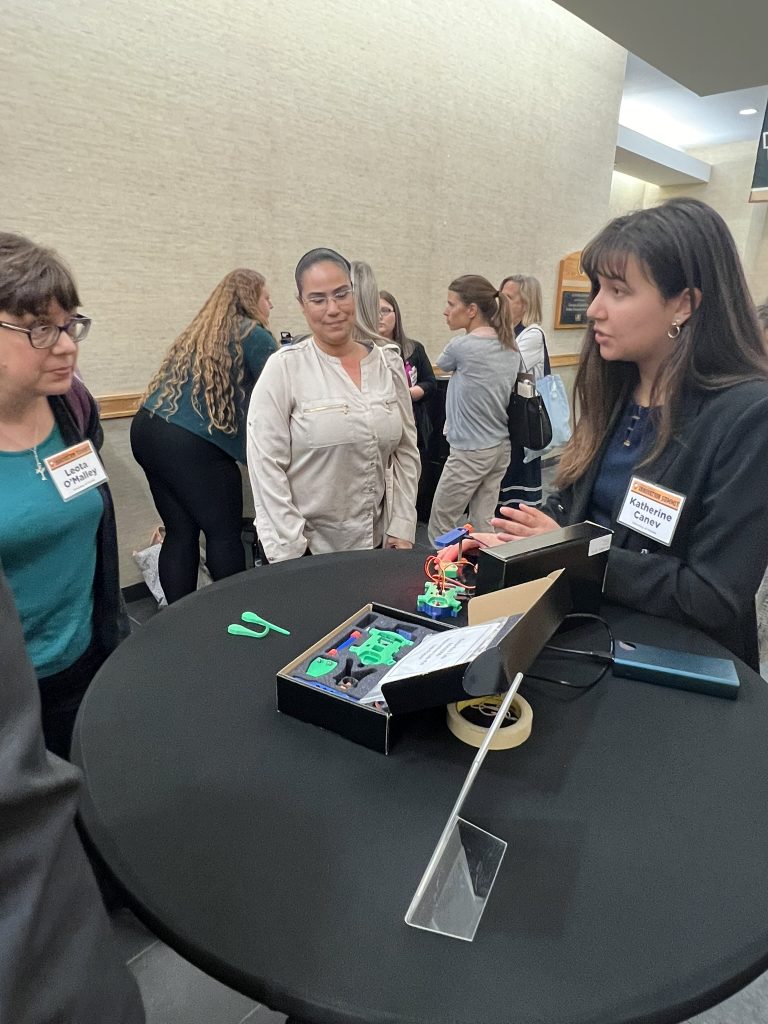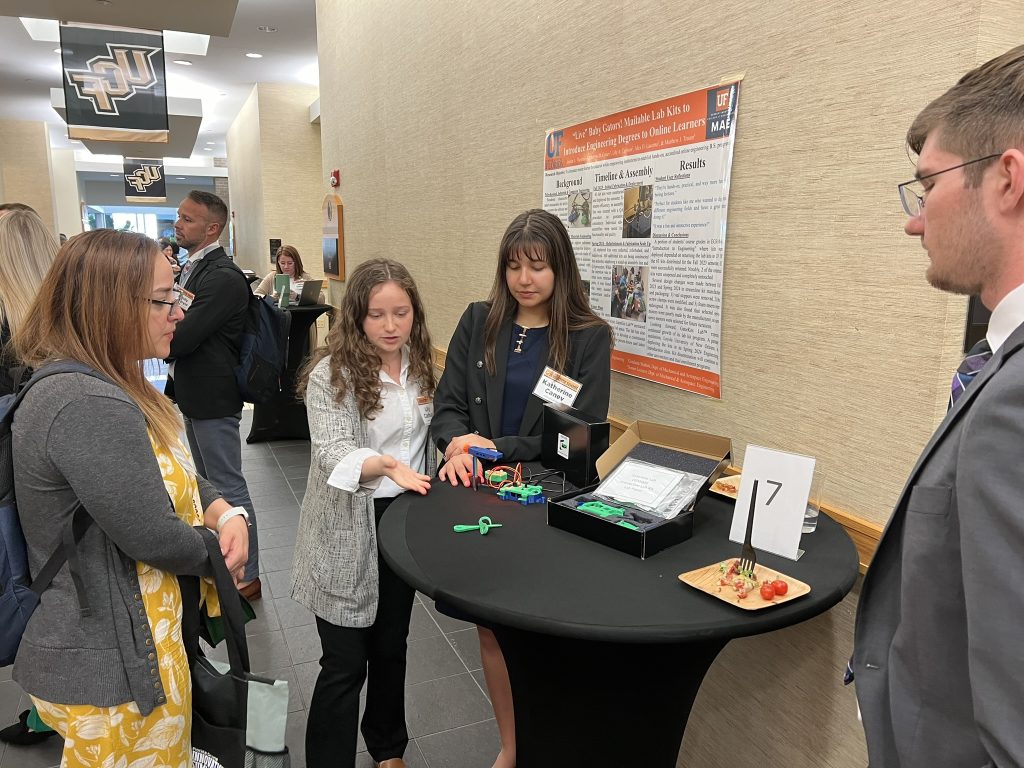GatorkKits Lab undergraduate researchers Austin Thomas, Katherine Canev, and Lily Carlson showcased their work in a poster presentation at the 2024 Florida Online Innovation Summit held at the University of Central Florida. The summit gathered educators, pedagogical researchers, and Ed Tech industry experts from across the southeast to discuss and explore cutting-edge advancements in online learning.

The trio’s poster, “Live” Baby Gators! Mailable Lab Kits to Introduce Engineering Degrees to Online Learners, garnered significant interest because functioning kits were showcased, and this interactivity captivated the audience. The presenters demonstrated how students interface with the gator kit showing capabilities including mechatronic light following, ability to ‘program’ by adjusting gains, and heart rate responsiveness to different illumination wavelengths.
These inexpensive 3D printed kits are fabricated in-house by GatorKits Lab at the University of Florida and support UF’s EGS1006C “Introduction to Engineering” course. This class is offered both in-person and online. So, the kits are mailable, enabling them to be sent to remote learners to provide a hands-on experiences for students taking the class online.
Austin, Katherine, and Lilly shared insights about the kit assembly process, emphasizing collaborative efforts of the research team from multiple departments including Mechanical & Aerospace Engineering and Chemistry. The trio eloquently explained the project’s original motivation: to impart online learners with practical engineering experiences. They also described how the kit’s creation inspired parallel projects, including a continuous 3D printer to increase part fabrication rate.

Overall, this presentation was a resounding success, highlighting the importance of innovative engineering education approaches to address evolving needs of online and remote learners through mailable physical kits. This project serves as an example for how hands-on experiences can be brought to online platforms, enriching students’ learning.